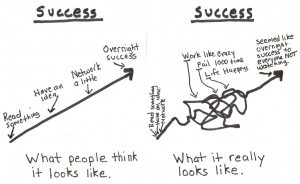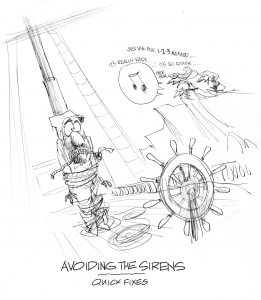Discovery & Mastery
You’re not going to master the rest of your life in one day. Just relax. Master the day. Then just keep doing that every day.
Unknown
More on Test #2 – Discovery & Mastery
Three Complicating Factors
Being a teenager means a lot of experimenting, discovery and eventually mastery. The problem is threefold. First, there are a lot of competencies to discover and master, ranging from self-management and social skills to a wide range of scholastic competencies. Second, the mastery process is not an easy one and requires a lot of perseverance. Third, the world most teenagers inhabit is not well designed to support mastery in many of the competency areas.
Lots of Settings for Developing Competencies
Support for self-management and social skills is rarely built into schools and it’s hard for parents to fill the gap given the changes happening in the teen-parent relationship. Schools also vary dramatically in their ability to support scholastic mastery.
Community organizations, camps, online programs, volunteer placements, faith communities and some other opportunities can make a major difference, but those opportunities also vary dramatically for different teens. So, this is a very tough type of test for most teenagers.
Being the Author
Because there are so many competencies to master (or at least be OK or good at) to be successful as a young man or woman and there are so many possible settings in which to develop them – it is critical to not wait for others to provide the opportunities and support. The key is to be the author and take charge of developing the desired competencies. That is not an easy task, nor one that comes naturally.
“Learning to Love the Plateau”
The biggest danger in pursuing mastery is getting discouraged. There are always times on the heroic journey when discouragement, sometimes even hopelessness, intrudes and that can sidetrack or end a journey if we aren’t ready. The keys are (1) to realize that mastery has a rhythm to it and (2) we have to “learn to love the plateau” and trust our practice.
Think about your experience on mastery plateaus when trying to learn a sport, dance, foreign language or math for example. You’ll know you’re being tested by a mastery plateau when you hear yourself saying (or thinking): “What’s the point? It’s not worth it. I’ll never get it. I don’t know what’s wrong or what to do. I’m just not good at this, etc.”

It is on those plateaus where we basically have to trust in the process and in our practice and keep going even without the encouragement that obvious improvement provides. If we do, we almost always come to the next period of leaps in competency – and probably won’t be able to see it coming.
The rhythm of mastery includes times when our competency seems to be developing rapidly and it gets exciting as we make leaps. The practice obviously pays off. The natural rhythm of mastery also includes times when improvement just doesn’t seem to be happening – even when we practice as hard as ever. That’s the plateau and that’s where it is very easy to get discouraged, cut back on the practice and maybe even give up.
Perseverance (Again)
This plateau pattern is a natural part of the heroic journey, so expect it and don’t be discouraged by it. The key quality to bring to this challenge is perseverance. Perseverance can be defined as: “Not giving up – steadfastness or continued effort to do or achieve something despite difficulties, failure or opposition.”
This is a critical strength to develop as a teenager, partly because it is naturally required and you can’t rely on others to back you up or do things for you as you did when you were a child. It’s also critical because it will be a major determining factor in your success as an adult.
Developing an appreciation for the path to mastery along with the ability to persevere helps avoid the temptation to jump to a quick fix or an easy solution.

If you talk to adults about mastery, most will have stories about when they persevered and succeeded and stories about when they gave up on the plateaus. The perseverance stories will come with a sense of satisfaction and pride. The stories about times when they didn’t persevere will come with a sense of regret. We all have both stories.
When you can see mastery as a path you go down instead of a destination you arrive at, it starts to feel accessible and attainable. Most assume mastery is an end result, but at its core, mastery is a way of thinking, a way of acting, and a journey you experience.
Gary
Keller